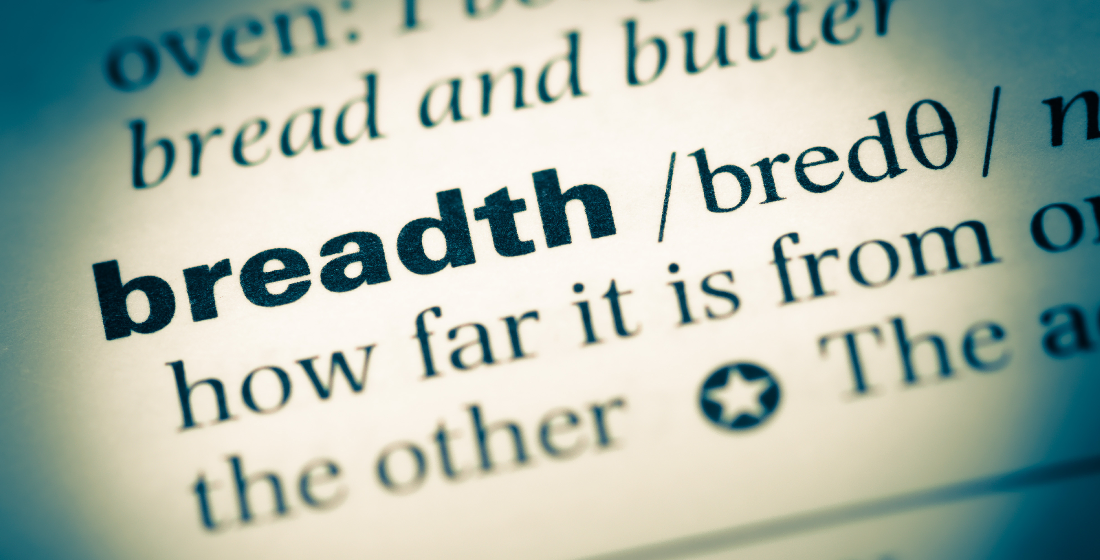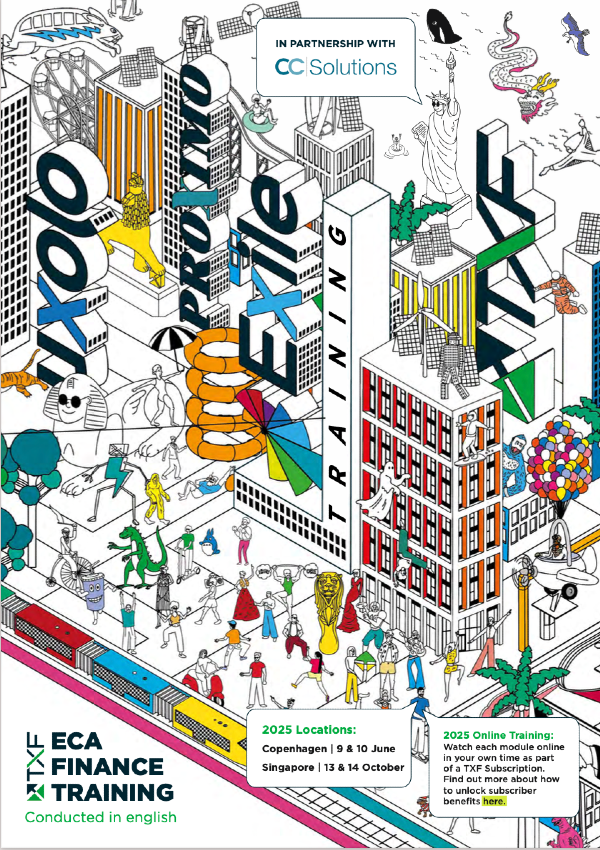Women investing in women: A diverse ecosystem for trade
On 8 March, men and women across the world celebrated International Women’s Day. This week, TXF’s Eavie Burnett takes a closer look at the vital role women and other minority groups play in the sphere of global trade.

In an interview with the BBC, children’s author and TV presenter Cerrie Bernell explained how the only character in books who, like her, had one hand, was Captain Hook – not exactly an identifiable role model for a young disabled girl.
Why is this relevant to the inclusion of more women in trade finance? Visibility is a crucial step towards inclusion. And the recent strides towards representation in literature has taught us a valuable lesson about trade: to encourage more women and minorities into an industry, they must first see themselves represented within it.
According to the World Bank, women contribute 37% to official global GDP measures while making up around 50% of the population. Proportionately, though, their contribution as exporters is much lower. In Canada, for instance, women-owned businesses make up just 16% of all SMEs, with only 11% of all women-owned businesses actually exporting.
How, then, can the trade finance industry redress the balance?
Over the past few years, there have been a number of trade finance programmes developed specifically for women-owned businesses. US Exim, for example, offers small-buyer’s credit insurance and working capital guarantees for women and minority-owned businesses; and the IFC’s Banking on Women Trade Finance Initiative incentivises partner banks in emerging markets to invest in female-owned SMEs.
Likewise, Export Development Canada (EDC) launched their Women in Trade Investment Programme (WiTIP) in 2019, which invests directly into women-owned Canadian businesses. This month, EDC announced that it will be ramping up support from their existing programme, doubling deal capacity from CA$50 million ($36.6 million) to $100 million respectively.
The revamped initiative is coupled with the aim to serve 1000 unique customers by 2023. “We are looking to invest equity into women founded, women lead, or women-owned businesses,” Jennifer Cooke, corporate lead for women in finance at EDC, tells TXF. “EDC has always supported growing Canadian companies, whether they’re founded by women or men. It’s not that we weren’t investing in women-owned companies before, but now we are being proactive and intentional when it comes to engaging with Canadian women-led businesses.”
According to Cooke, there are two main barriers to entry for female-owned businesses – access to capital and access to networks. “One of the greatest challenges for women entrepreneurs to scale is access to capital,” she says. “Women are also less likely to have the types of network that help them identify opportunities or connect them to capital.”
In short, by reaching out to female-owned businesses and providing direct investment, EDC hopes to ease these key pain points. But EDC hasn’t stopped there. The Canadian export credit agency (ECA) has also dedicated a landing page called Women-in-Trade, which contains real life case studies of female-led businesses, with the idea being that highlighting Canadian female exporters will provide an exemplar to encourage others to enter the market.
EDC believes these initial investments through the WiTIP will nurture young businesses as they grow into future users of ECA finance. ECAs across the globe face the same challenges when it comes to product engagement and increased access to trade and export finance, with most investing heavily in new marketing tactics to attract novel exporters. EDC provides capital investment at the crucial stage of commercialisation for women-owned businesses to help them scale. Following this, EDC can continue to support these growing businesses as their needs change. In effect, EDC is growing the next generation of ECA product users.
A strong business case
The WiTIP isn’t just a case of social responsibility; it follows a solid business case for diversity. Data from McKinsey shows that companies with gender diverse boards are 21% more likely to report financial performance above the national average. Cooke’s experiences corroborate this. She tells TXF, “[Diverse companies] have better business results. They are more creative and innovative. They have better financial results. They have happier employees.’
But diversity exists beyond gender: ethnicity, sexuality, age, experience and socioeconomic background are just some of the intersectionalities that can boost productivity. McKinsey reports that companies in the top quartile for ethnic and cultural diversity on executive teams were 33% more likely to report industry-leading profitability.
EDC recognises the need from other underserved communities in Canada when it comes to access to finance. Not only does it run a specific programme for indigenous owned Canadian companies, but it works with the Canadian Gay and Lesbian Chamber of Commerce to benefit the LGBTQ+ community. EDC commits to updating their perspectives of what creates an underserved community in the Canadian export finance space.
“As we continue to explore other underserved, diverse characteristics in company ownership, we find even more pronounced barriers to trade,” Cooke tells TXF, adding, “We’re consciously trying to be very inclusive when it comes to diversity and the types of companies that we’re supporting.”
Crucially, support for diverse businesses does not come at the expense of others. Research shows that increasing participation from female-owned business in Canada could add up to $150 billion in incremental GDP by 2026. “We’re incrementally adding value to the bottom line of our economy [with the WITIP]”, says Cooke. “In doing so, we end up benefitting everyone.”
An internal matter
EDC recently appointed Mairead Lavery as its first female CEO in its 75-year history. And it is not the only ECA headed up by a female CEO either: Export Finance Australia, EKN, EKF, GIEK, US Exim, Euler Hermes and SEK also join the growing list. Large commodity traders are following suit too, with Gunvor recently appointing Muriel Schwab as its first ever female CFO.
Whilst a female CEO is an important figurehead, it’s vital that diversity is considered in all hiring decisions. “EDC has done a great job of gender diversity and inclusion on many fronts, not just with our CEO but within our board of directors,” says Cooke. “We have a female chair of the board and make constant effort when it comes to gender balance among our middle and senior management teams.”
A diverse ecosystem
In a productive ecosystem, organisms must fulfil diverse roles in order to survive. A range of different qualities are required to facilitate the complex relationships that make the community thrive. The same can be said for trade. Ours is an industry that relies on relationships: the transfer of funds and goods hinge on connections between people and companies. Much like in the natural world, diversity is a vital catalyst for trade.
So we should applaud EDC for leading a revitalised charge for greater equality in the market. In fact, one of the Canadian ECA’s most important elements to the WiTIP is its venture capital fund.
“We want to get money into the hands of female decision makers,” says Cooke. “Data shows that female investors are more likely to identify opportunities for companies started by other female entrepreneurs. We want to change the dynamic of gender balance by encouraging more women into investment decision making positions.”
The WiTIP, then, puts capital in the hands of investors. This is a step towards the full integration of underserved communities into the financial ecosystem, working towards a much more diverse environment. But more ECAs need to follow EDC’s lead if this change is to take place on the global stage.
Trade finance is clearly catching on to the need to diversify. This is not confined to gender either, rather accounting for ethnicity, sexuality, and other elements that represent underserved communities. Programmes like this are how we can start changing the landscape for trade and export finance, ultimately creating a diverse ecosystem in which trade can thrive.
TXF is proud to have launched Stages for Change, our content-led initiative championing diversity in trade & export finance. We are committed to changing the landscape in our industry and working towards a diverse financial ecosystem. To hear more about our events, partnerships and annual programme, contact eavie.burnett@txfmedia.com.
Now time to get up to speed on the markets.
Here's our exclusive TXF in depth articles
Keynote: Opening up EKN's one-stop guarantees shop
EKN had a banner year in 2019. EKN’s director general, Anna-Karin Jatko tells TXF about the rise of supplier credits for larger contracts, and how as part of ‘Team Sweden’ she has put sustainability, digitisation and the simplification of export finance at the top of the Swedish ECA’s mission statement.
CFXD: A lesson in going local
The 589MW CFXD offshore wind project in Taiwan has marked the highest local content percentage for any such project in Asia Pacific. But signing up two Taiwanese insurance companies as lenders/sponsors added new levels of complexity for project sponsor Copenhagen Infrastructure Partners.
Exclusive TXF Tracker and Originals content
New Gbessia airport concessionaire looking at DFI debt
Aeroports de Paris (ADP), Africa50, and the Guinean government have signed a new 25-year concession for the upgrade of Gbessia International Airport in Conakry, Guinea.
Lead banks appointed for Changhua offshore wind
Orsted has picked lead banks for financing the 900MW Changhua 1 and 2a offshore wind projects in Taiwan.
ChemChina eyes new HK company
State-owned China National Chemical Corporation (ChemChina) is looking to set up a new company in Hong Kong.
Mozambique-Malawi regional interconnector EPC tender imminent
Mozambique's state-owned electricity utility Electricidade de Mocambique (EdM) is expected to launch an EPC tender for the $130 million Mozambique-Malawi regional internconnector project before the end of March.
Kuwait seeking North Shuaiba privatisation advisers
The Kuwait Authority for Privatisation (KAP) is seeking advisers for its planned privatisation of the North Shuaiba power and water project.
Two final bids for Sfax desal construction
Tunisia’s Societe Nationale d'Exploitation et de Distribution des Eaux (SONEDE) has received final offers from just two of the six prequalified bidding groups for construction of the 100,000 m3/day Sfax reverse osmosis seawater desalination project.
US Exim withdraws from $17bn Rovuma LNG project
US Exim has backed out of the $17 billion Rovuma LNG project financing in Mozambique.
China Hongqiao sounds out banks amid Shandong uncertainty
Shandong-based aluminium producer China Hongqiao is out to market with a three-year $200 million term loan.
Masdar London Array refinancing nears signing
Masdar is expected to sign on the refinancing of its 20% share in the 630MW London Array offshore wind farm next week.
TCB-1 coal-fired plant reaches financial close
Shanghai Electric via project vehicle Thar Coal Block-I Power Generation (TCB-I) has reached financial close on a $1.43 billion ECA-backed loan to finance a 1.32GW coal-fired plant in Pakistan.





